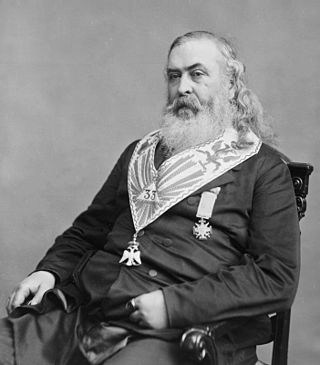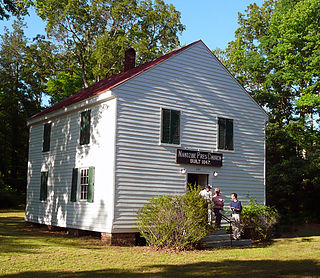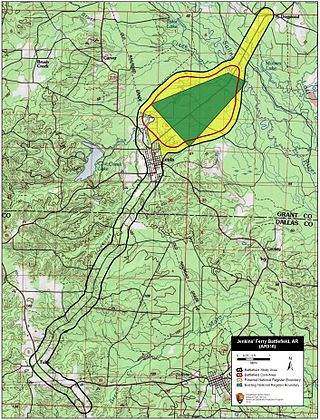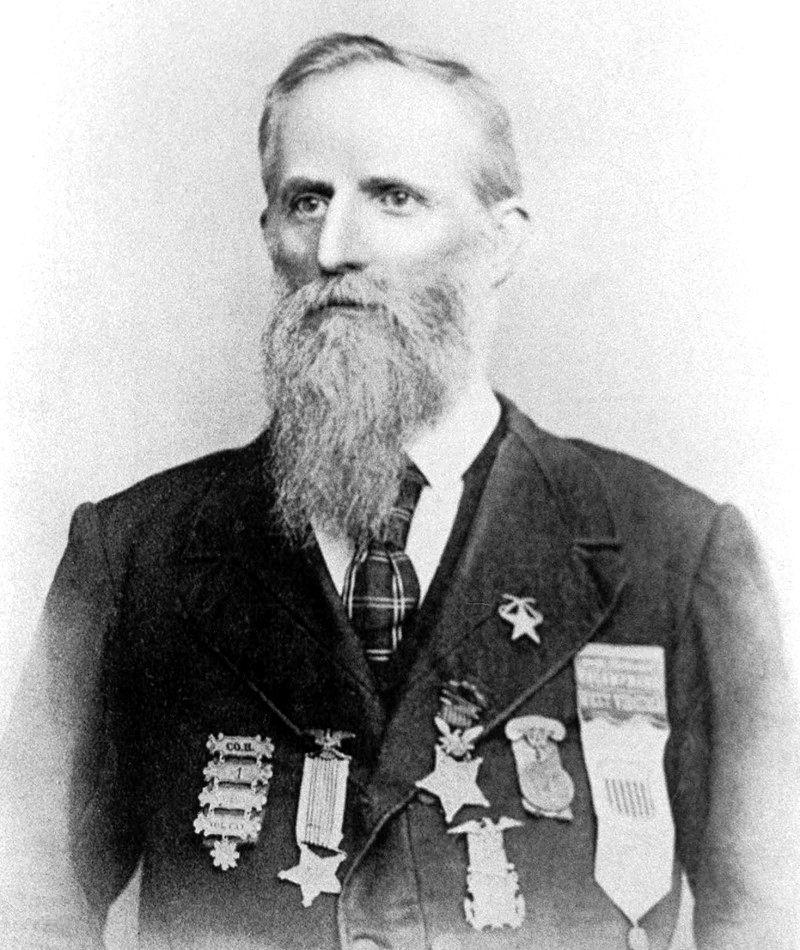
Albert Pike was an American author, poet, orator, editor, lawyer, jurist and Confederate States Army general who served as an associate justice of the Arkansas Supreme Court in exile from 1864 to 1865. He had previously served as a senior officer of the Confederate States Army, commanding the District of Indian Territory in the Trans-Mississippi Theater. A prominent member of the Freemasons, Pike served as the Sovereign Grand Commander of the Supreme Council, Scottish Rite from 1859 to 1891.

George Armstrong Custer was a United States Army officer and cavalry commander in the American Civil War and the American Indian Wars.

Winthrop Rockefeller was an American politician and philanthropist. Rockefeller was the fourth son and fifth child of American financier John D. Rockefeller Jr. and Abby Aldrich Rockefeller. He is one of the grandchildren of Standard Oil co-founder John D. Rockefeller. As an entrepreneur in Arkansas, he financed many local projects, including a number of new medical clinics in poorer areas, before being elected state governor in 1966, as the first Republican governor of Arkansas since Reconstruction. Despite accusations of lacking insight into the concerns of low-income voters, Rockefeller was re-elected in 1968, and went on to complete the controversial integration of Arkansas schools.

The Michigan Brigade, sometimes called the Wolverines, the Michigan Cavalry Brigade or Custer's Brigade, was a brigade of cavalry in the volunteer Union Army during the latter half of the American Civil War. Composed primarily of the 1st Michigan Cavalry, 5th Michigan Cavalry, 6th Michigan Cavalry and 7th Michigan Cavalry, the Michigan Brigade fought in every major campaign of the Army of the Potomac from the Battle of Gettysburg in July 1863 to the Confederate surrender at Appomattox Court House in April 1865.

The Battle of Trevilian Station was fought on June 11–12, 1864, in Union Lt. Gen. Ulysses S. Grant's Overland Campaign against Confederate Gen. Robert E. Lee's Army of Northern Virginia. Union cavalry under Maj. Gen. Philip Sheridan fought against Confederate cavalry under Maj. Gens. Wade Hampton and Fitzhugh Lee in the bloodiest and largest all-cavalry battle of the war.

The Battle of Namozine Church was an engagement in Amelia County, Virginia, between Union Army and Confederate States Army forces that occurred on April 3, 1865, during the Appomattox Campaign of the American Civil War. The battle was the first engagement between units of General Robert E. Lee's Confederate Army of Northern Virginia after that army's evacuation of Petersburg and Richmond, Virginia, on April 2, 1865, and units of the Union Army under the immediate command of Maj. Gen. Philip Sheridan, who was still acting independently as commander of the Army of the Shenandoah, and under the overall direction of Union General-in-Chief Lt. Gen. Ulysses S. Grant. The forces immediately engaged in the battle were brigades of the cavalry division of Union Brig. Gen. and Brevet Maj. Gen. George Armstrong Custer, especially the brigade of Colonel and Brevet Brig. Gen. William Wells, and the Confederate rear guard cavalry brigades of Brig. Gen. William P. Roberts and Brig. Gen. Rufus Barringer and later in the engagement, Confederate infantry from the division of Maj. Gen. Bushrod Johnson.

The Battle of Jenkins' Ferry, also known as the Engagement at Jenkins' Ferry, was fought on April 30, 1864, at Jenkins' Ferry, southwest of Little Rock, during the American Civil War. Although the battle ended with a Union victory, the Confederates saw it as a strategic success as they claimed to have prevented Frederick Steele from holding southwest Arkansas. Due to the chaotic nature of the battle, casualty figures vary.

James Patrick Sinnott Devereux was a United States Marine Corps general, Navy Cross recipient, and Republican congressman. He was the officer-in-charge (OIC) of the 1st Defense Battalion Detachment during the defense of Wake Island in December 1941. He was captured on Wake Island as a prisoner of war, along with his men, after a 15-day battle with the Japanese. After his release in September 1945, he concluded his military career as a colonel in 1948, where upon his retirement he was promoted to brigadier general. He later represented the second congressional district of the state of Maryland in the United States House of Representatives for four terms from 1951 to 1959. He was an unsuccessful candidate for election as Governor of Maryland in 1958.

The Battle of Pine Bluff, also known as the Action at Pine Bluff, was an engagement during the American Civil War at Pine Bluff, Jefferson County, Arkansas on October 25, 1863. A Union garrison under the command of Col. Powell Clayton successfully defended the town against attacks led by Confederate Brig. Gen. John S. Marmaduke. Much of the fighting took place near Jefferson County Courthouse, which Confederate forces tried unsuccessfully to set ablaze. The Union victory ensured that Pine Bluff was held by the United States' garrison until the end of the Civil War in 1865.
Glenda Elizabeth Gilmore is an American historian of the American South at Yale University. She is the author of many publications, including "These United States: A Nation in the Making 1890 to Present" (2015), "Gender and Jim Crow: Women and the Politics of White Supremacy in North Carolina, 1896-1920" (1996), and "Defying Dixie: The Radical Roots of Civil Rights, 1919-1950" (2008).

James Conmee was an Ontario businessman and political figure. He represented Algoma West from 1885 to 1902 and Port Arthur and Rainy River from 1902 to 1904 in the Legislative Assembly of Ontario and Thunder Bay and Rainy River in the House of Commons of Canada from 1904 to 1911 as a Liberal member.
Clara Blinn was an American settler who, with her two-year-old son Willie, was captured by Indians in October 1868 in Colorado Territory during an attack on the wagon train in which she and her family were traveling. She and her little boy were killed on or about November 27, 1868 during or in the immediate aftermath of the Battle of Washita River, in which the camp of the Cheyenne chief Black Kettle was attacked and destroyed by troops of the Seventh U.S. Cavalry under the command of Lt. Col. George Armstrong Custer. Clara and Willie Blinn's bodies were found some two weeks after the fight in one of several abandoned Indian camps along the Washita River near present-day Cheyenne, Oklahoma.

Dixie, also known as Dixieland or Dixie's Land, is a nickname for all or part of the Southern United States. While there is no official definition of this region, or the extent of the area it covers, most definitions include the U.S. states below the Mason–Dixon line that seceded and comprised the Confederate States of America, almost always including the Deep South. The term became popularized throughout the United States by songs that nostalgically referred to the American South.

Mark Grimsley is an American professor of History at Ohio State University. His 1995 book, The Hard Hand of War: Union Military Policy Toward Southern Civilians 1861-1865, earned second place in the Gilder Lehrman Lincoln Prize category.

The 46th United States Colored Infantry was an infantry regiment that served in the Union Army during the American Civil War. The unit was originally designated as the 1st Arkansas Infantry Regiment. The regiment was composed of African American enlisted men commanded by white officers and was authorized by the Bureau of Colored Troops which was created by the United States War Department on May 22, 1863.

Francis Marion Cunningham was a United States' soldier and native of Pennsylvania who fought with Company H of the 1st West Virginia Cavalry during the American Civil War. Cunningham received his nation's highest award for bravery during combat, the U.S. Medal of Honor, for his action during the Battle of Sailor's Creek in Virginia on April 6, 1865. That award was conferred on May 3, 1865.
The 11th United States Colored Infantry was an infantry regiment that served in the Union Army during the American Civil War. The regiment was composed of African American enlisted men commanded by white officers and was authorized by the Bureau of Colored Troops which was created by the United States War Department on May 22, 1863.

Black Dixie: Afro-Texan History and Culture in Houston is a 1992 book edited by Howard Beeth and Cary D. Wintz and published by Texas A&M University Press. It is a collection of thirteen essays about the history of African-Americans in Houston. It was the first scholarly book to provide a comprehensive history of Houston's black community, and the book's dust jacket referred to it as the first such book of any city in the Southern United States.
In Deadly Earnest: The History of the First Missouri Brigade, CSA is a 1991 book written by Phil Gottschalk and published by Missouri River Press. The book follows the story of the brigade from its formation through the end of the war and posits that the men of the unit were fighting for the South, not slavery. It is illustrated with both maps and photographs. Reviewers characterized the book as redundant and criticized its tendency to contain digressions into off-topic material. One reviewer questioned some of the book's conclusions and described it as "ancestor worship posing as history". Other reviewers acknowledged the book's flaws and described it as a positive addition to the bibliography of the American Civil War.
Michael A. Elliott is an American scholar of English literature and academic administrator. He became 20th president of Amherst College on August 1, 2022.















